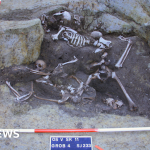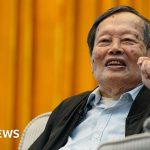
Introduction
Narendra Modi, born on September 17, 1950, is an Indian politician who has gained unprecedented popularity both within India and globally. He is currently serving as the Prime Minister of India, a position he has held since May 2014. Modi’s rise to power and his subsequent popularity can be attributed to several factors that have resonated with the Indian public.
Early Life and Rise to Power
Modi was born in Vadnagar, Gujarat, and grew up in a humble background. He joined the Rashtriya Swayamsevak Sangh (RSS) at a young age and later became a pracharak (campaigner) for the organization. Modi’s political career began in the 1980s when he joined the Bharatiya Janata Party (BJP). His leadership skills and dedication to the party quickly propelled him to various positions within the party hierarchy.
Development Agenda
One of the main reasons behind Modi’s popularity is his focus on development. During his tenure as the Chief Minister of Gujarat from 2001 to 2014, he implemented several policies and initiatives aimed at boosting the state’s economy and infrastructure. His emphasis on economic growth and job creation struck a chord with the Indian public, particularly the youth.

Foreign Relations and Global Recognition
Modi’s proactive approach to foreign policy has also contributed to his popularity. He has actively engaged with world leaders and has been successful in strengthening India’s diplomatic ties with numerous countries. His international visits and interactions have garnered significant attention, making him a prominent global figure.
Charismatic Leadership
Modi’s charismatic personality and powerful oratory skills have played a crucial role in his popularity. He connects with the masses through his speeches, addressing their concerns and aspirations. His ability to communicate effectively has allowed him to establish a strong rapport with the Indian population.

Criticism and Controversies
While Modi enjoys immense popularity, he has also faced criticism and controversies. One of the major controversies surrounding him is his alleged involvement in the 2002 Gujarat riots, which resulted in the deaths of hundreds of people, mainly from the Muslim community. Despite these controversies, his popularity remains largely unaffected.
Conclusion
Narendra Modi’s unprecedented popularity can be attributed to his focus on development, proactive foreign relations, charismatic leadership, and ability to connect with the masses. His rise from humble beginnings to becoming the Prime Minister of India has made him a symbol of hope and progress for many Indians. However, it is essential to acknowledge and address the controversies and criticisms that surround him to ensure a balanced assessment of his legacy.





